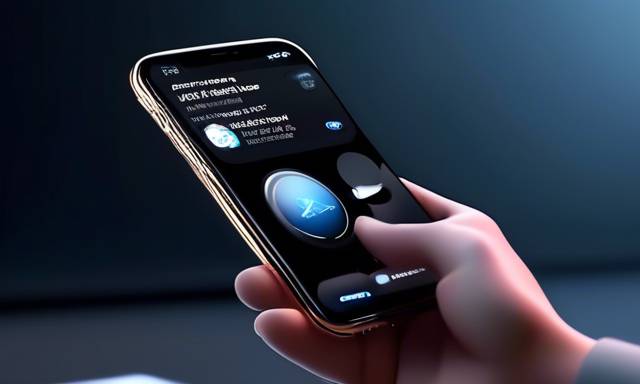Exciting Updates in Apple’s iOS 18: Key Features Unveiled 🚀
This year, Apple introduced its latest iteration of the iPhone operating system, iOS 18, on Monday, showcasing a variety of new features aimed at enhancing security and privacy. This rollout follows the recent announcement of updated iPhone models, AirPods, and Apple Watch. Preorders for the newest iPhones started last Friday, with plans for a broader release on September 20.
Tech analysts indicate that the new iPhone hardware appears to be an incremental improvement, and initial reports suggest a potential decline in demand. Consequently, neither the new devices nor the artificial intelligence features may lead to a significant surge in upgrades. However, iPhone users should take the time to explore the innovations introduced with iOS 18, particularly the revamped Password Manager app and enhanced options regarding data access and privacy controls, which includes new methods for safeguarding sensitive applications and information on shared devices.
Industry experts emphasize that the changes in iOS 18, with the public beta version available since July, aim to simplify the understanding and utilization of existing privacy protections.
Jodi Daniels, a privacy consultant and CEO of Red Clover Advisors, noted, “Apple continuously strives to enhance user privacy and makes efforts to ensure that these features are easily understood.”
Enhanced Password Management 🛡️
Apple has introduced a dedicated app for password management, separating this functionality from the existing iCloud Keychain embedded within Apple devices. This shift facilitates easier access and management, according to privacy experts.
Additional features aimed at promoting robust privacy include notifications for users about potential data breaches involving their passwords or credentials, thereby strengthening fraud protection. Moreover, users will be alerted to weak or previously used passwords, encouraging the adoption of unique login information.
- Key improvements include:
- Alerts for data breaches
- Notifications for using weak or reused passwords
- “The overarching aim is to promote unique passwords and enhance overall online security,” stated Thorin Klosowski, a security activist at the Electronic Frontier Foundation.
As previously established, Apple cannot access users’ passwords, but users can manage them on their iPhones, iPads, Macs, and Apple Vision Pro devices or via the iCloud app on Windows. The AutoFill function will also streamline password integration into the new Passwords app.
Users will find convenient access to various credentials, including verification codes, passkeys, and Wi-Fi passwords, with the option to categorize passwords into groups such as family or work.
Protecting Your Privacy: Locking and Hiding Apps 🔒
This latest system allows users to lock or hide apps to enhance privacy. While essential functional applications must remain visible, almost any app available on the App Store can be hidden, according to Apple representatives.
This feature proves useful in scenarios such as sharing devices with friends or allowing children temporary access to play games. By locking or hiding an application, notifications and content within remain concealed, ensuring privacy during these interactions.
Users can unlock apps with Face ID, Touch ID, or a device passcode. Moreover, Apple has implemented guidelines aimed at preventing children under 13 from locking or hiding apps. Those between 13 and 18 can access these features, but parental visibility into app downloads and usage remains intact.
Control Over Contact Sharing 🔗
iOS 18 introduces enhanced controls for how contacts are shared with applications. Users can opt to share none, all, or select contacts, allowing for more tailored privacy management.
For instance, if a user utilizes an app strictly for professional purposes, they may choose to share only work-related contacts. Settings are adjustable, helping users assess the necessity of granting contact access to various apps.
Visibility of App Data Access 🔍
iPhone users can now quickly ascertain the number of applications tapping into data such as location services, contacts, calendars, and more. Entering any specific category reveals a list of apps detailing their access level, whether limited or full.
AI Innovations with an Emphasis on Privacy 🤖
Additionally, Apple is set to debut Apple Intelligence, an artificial intelligence platform designed with privacy at its core. This platform leverages on-device processing for personal data management without the need for Apple to store or collect user data. A sophisticated system will then utilize larger server-based models for complex queries while maintaining privacy safeguards.
Such features resonate with users who seek AI benefits but grapple with privacy concerns, especially regarding data usage for training AI models. Jodi Daniels highlighted, “Keeping data local significantly mitigates this risk.”
Apple’s latest operating system not only enriches the user experience but also amplifies the emphasis on security and privacy, ensuring that personal information remains secure amid evolving technological landscapes.





 By
By
 By
By


 By
By
 By
By